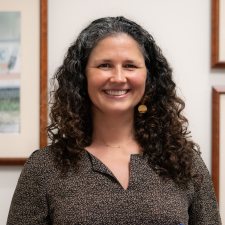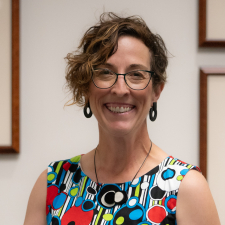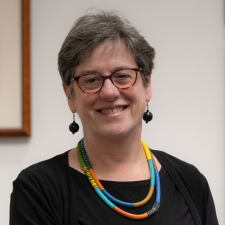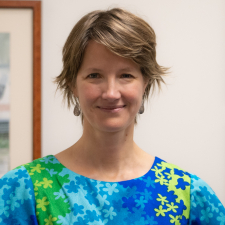
Trinity Communications
Four faculty in the Trinity College of Arts & Sciences were recently recognized by the Arts & Sciences Council for outstanding achievements in undergraduate teaching.
Each year, the Council’s Committee on Undergraduate Teaching selects outstanding faculty members for their commitment to their students, for engaging them deeply in research and scholarship, for their continued development as innovative teachers and mentors, and more.
Members of the council — in collaboration with the dean's office — select the award recipients by considering student evaluations, teaching statements and recommendations submitted by colleagues. Four awards are given each year, spanning the breadth of undergraduate disciplines offered in the college.
This year’s recipients are:
In an announcement to faculty and staff, Gary G. Bennett, Dean of Trinity College, and Deb Reisinger, Trinity's Dean of Undergraduate Education, congratulated the winners.
“This is an annual tradition of deep meaning, for it honors a defining quality and long-held value of Trinity College: excellence in teaching,” they wrote.
Read a bit more about each of the 2024 honorees:

Since coming to Duke in 2021, Haas's goal has been to convert four laboratory courses in Physical and Analytical Chemistry into Course-Based Undergraduate Research Experiences (CUREs) and guided-inquiry labs based on active learning and including frequent formative assessments.
These types of labs require considerably more effort than traditional canned labs, but have a much higher impact, create deep and durable learning, and increase inclusivity and retention — all by engaging students with authentic research.
“As a scientist, I like to use data to make my decisions [about teaching]. I am guided by the extensive research on science education to select effective pedagogies and practices for inclusion and equity,” said Haas. “I have found that often, the pedagogies that increase learning for all groups are the same ones that feel most enjoyable to me as an instructor.”

April Henry is no stranger to awards and fellowships — she has received seven top 5% course evaluations over a seven-year period, she is the recipient of the Borchardt Teaching Award in 2016 and was celebrated as a mentor in 2019 and 2022.
Henry’s teaching repertoire includes the creation and offering of nine unique courses in literature, culture and language from 2018-2024. Her course development has been key in bringing larger and more diverse student bodies to the language and literature classroom.
“Henry has been tireless in her commitment to all her students, her collegiality within and beyond her department since beginning her career at Duke in 2009,” said one of her nominators. “She continues to actively participate in Duke faculty development programs, exploratory practice teaching groups and the Duke Teaching for Equity Faculty Program.”

Shapiro came to Duke in 2003 and has since been affiliated with both the Department of History and the Department of African and African American Studies. Her teaching helps students make connections between African and African American culture and history.
Shapiro impressed the selection committee right from the opening of her teaching statement, in which she succinctly states a teaching strategy that is ambitious and reflects a deep level of commitment and care for her students.
“I meet students where they are, and provide tools to move them to a place where they read critically and fully participate in wide-ranging and sometimes difficult discussions,” she wrote.

Caroline Stinson is a Cellist, a member of the Ciompi Quartet, a world-renowned soloist and chamber musician, and an exemplary teacher who collaborates with and encourages her students to produce their best work.
In recognizing her, the Committee highlights the connections she fosters between students. With her encouragement, students discover their best selves and engage with multiple, diverse communities here at Duke and beyond.
Each year, Stinson’s students visit Boston to perform with students from the New England Conservatory. They are also actively involved in music education and social change in the Durham Community, in addition to being part of Larkspur, the Music department’s student string ensemble.